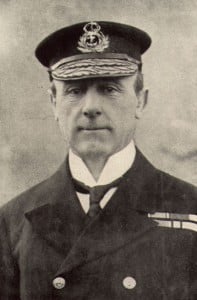Patent law is essential to industry and commerce, whether creating new markets and technologies through “creative destruction” and “disruptive innovation” or evolving and improving those that already exist. Cases involving these patents, however, require a judiciary well-informed enough to understand the differences between them. In addition, disruptive innovations in biotechnology can raise questions traditionally addressed by the humanities.
Day 2 of the Bio 2012 Convention brought a panel discussion “Biotechnology on Trial: Scientific Literacy in the Courts and Judicial Reactions to Disruptive Innovations from Life Science.” Judge Annabelle Bennett, for the Federal Court of Australia, led off a discussion of the scientific knowledge and proficiency of the judges who decide inherently highly technical patent cases. While Judge Bennett was the only one on the panel with a science background, even she acknowledged that her skill and knowledge cannot be kept up to current, leading edge standards of scientists.
So, the question arises, who should decide technical questions in patent cases, lawyers or experts? The panel agreed that it is difficult to get an expert that is genuinely unbiased. Furthermore, even if unbiased, scientific experts can disagree. Judges work with experts in order to get informed about the technical issues of the case but then run the risk that lawyers can question whether a judge spent too much time with expert. A preferred way to get background information is to first have the parties’ experts offer written, neutral reports. Another method is “hot-tubbing.”
“Hot-tubbing,” a common practice in Australian courts, is also known as “concurrent evidence.” It means that expert witnesses in a complex, technical trial – such as a patent dispute about biotech, for example – can testify in court together on a panel, rather than one-by-one in the witness box. This allows lawyers and the judge to question the experts in each other’s presence. It also allows the experts to directly challenge each other’s evidence. Ideally, a judge with only a layman’s knowledge of complex technical matters can more easily pinpoint the key issues in a case. Some lawyers remain lukewarm to the concept but it could catch on here in the U.S.
Dr. David Bennet, Former Solicitor-General of Australia, Commonwealth of Australia, felt lawyers can do anything and has great faith in trial attorneys. When litigators must take a case, they have to learn a lot about the particular case and the related science, even if totally unknown. They specialize in learning.
Hon. William Young Judge agreed with Justice Bennett who said he depends upon advocates to teach him and that is the central attribute of skilled trial lawyer. He believes that among best trial lawyers are those specializing in IP and this makes judges delighted to get patent cases. While Justice Young likes the concept of hot-tubbing, he indicated that no one will take him up on it so maybe he will need to force the matter.

Hon. Roger Hughes, a Judge for the Federal Court of Canada, felt that you are just not going to find judges an expert in the relevant field. This is not a requirement for job, you want judges to be generalists.
Seth Waxman, a Partner at WilmerHale, summed up things saying “No one wants to hot tub with a litigator.”

[…] BIO 2012 Day 2: Justices Ponder Hot Tubbing, Patent Baristas […]